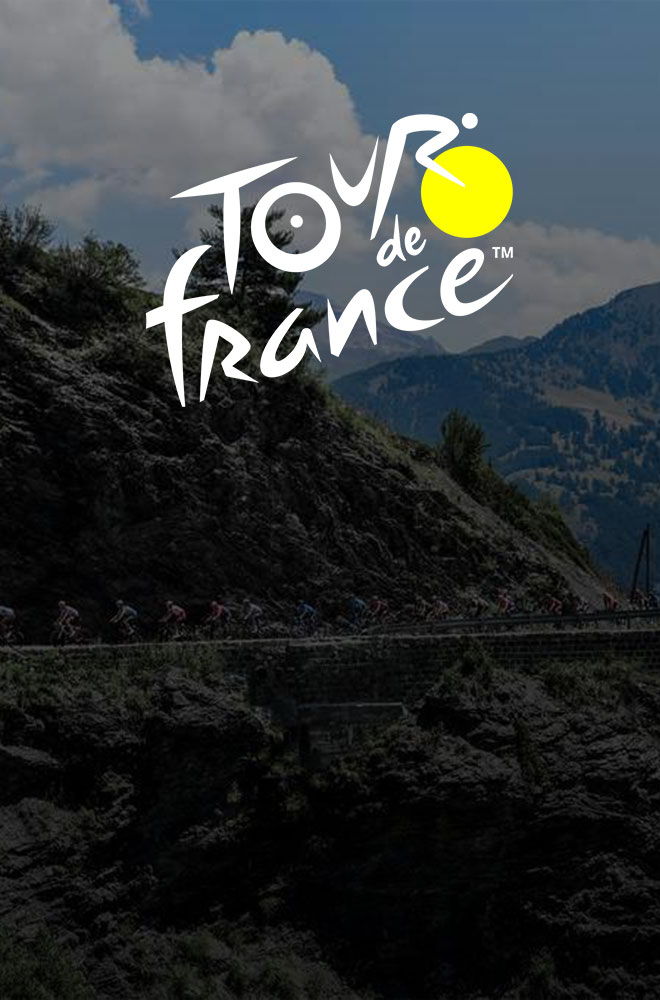The beginning to the 112th edition of the Tour de France has been presented at a press conference in Lille, the administrative centre of the Nord department. In 2025, the Grand Départ will focus on the qualities of the entire Hauts-de-France region, the Nord department and the European metropolis of Lille.
The date of 5th July has been set for the first stage, whose route will form a loop around Lille. Next, the Pas-de-Calais department will have pride of place as the pack crosses it from east to west between Lauwin-Planque and Boulogne-sur-Mer. After that, the pack will then set off from Valenciennes, which makes its return to the route of the Tour after a 34-year absence. Dunkirk, which hosted the Grand Départ in 2001 as well as a stage start on the Tour in 2022 will be welcoming the finish of the third stage. Lastly, the start in Amiens will be the last opportunity to thank the inhabitants of the Hauts-de-France region for their welcome, before the Tour heads off to new horizons.
Northern France will be welcoming new giants. A far cry from the imposing puppets we are used to seeing at carnivals, fairs, special street markets or on Paris-Roubaix, these 176 ones will be of human size and riding bikes, ready to do battle through the plains, valleys and mountains of France. Northern France knows all about cycling giants: 2 winners (Maurice Garin, an adopted northerner, in 1903, and Henri Cornet in 1904); 7 Yellow Jersey wearers (Jean Alavoine in 1922, Amédée Fournier in 1939, José Catieau in 1973, Martial Gayant in 1987, Cédric Vasseur in 1997, Laurent Desbiens in 1998 and Christophe Moreau in 2001); plus a legend in Jean Stablinski, with more 100 professional victories including 5 stages on the Tour de France between 1957 and 1967, a world championship title (1962) and four French championship titles (1960, 1962, 1963 and 1964).
For the 5th time, the Tour de France will set off from this cycling-mad region, the cradle of Paris-Roubaix. In 2001, for the most recent Grand Départ, from Dunkirk, Christophe Moreau grabbed the Yellow Jersey on completion of the prologue. This time, on a regular stage, the battle for the first Yellow Jersey of the race will be fought at high speed and the victor will have to be on top form to triumph in the land of the giants.
The European metropolis of Lille, the first site to host this Grand Départ, will also be the site for the edition’s first finish. On a stage that will form a loop around Lille, the wind will be a decisive factor: on roads open to the elements, the riders will have to be on their guard to avoid getting caught out. The fight for the best climber’s jersey should act as a curtain raiser for the battle for the Yellow Jersey: the slopes of Notre-Dame-de-Lorette, Mont Cassel (via its cobbled side) and the Mont Noir, forty kilometres from the finishing line, will be in the sights of the first breakaways of the edition. The sprinters will probably battle it out for victory at the end of a one kilometre-long straight, at the foot of the citadel.
The following day, the peloton will leave the Nord department to cross through the Pas-de-Calais for a very tough finale on the Côte d’Opale before the fight for stage victory in Boulogne-sur-Mer. The end of this second stage, which is tailor made for punchers, will be no easy task for the previous day’s winner if he is a pure sprinter. In addition to the upwardly inclined final straight, the slopes at Saint-Etienne-au-Mont and Outreau, located less than ten kilometres from the finishing line, mean it is very likely the pack’s tough guys will be battling for the stage win.
The race will return to the Nord department on 7th July for the last stage that will take place entirely within the confines of the Hauts-de-France region. Between Valenciennes and Dunkirk, watchfulness and tension in the peloton should be the order of the day. The start from Valenciennes and the first part of the stage do not hold any particular difficulty in store, unlike the finish, as the race nears Dunkirk, which could prove to be extremely tricky. Following the intermediate sprint at Isbergues, well-known to cycling aficionados, the route due north to the Côte de Cassel slope and then the finish of the stage promise to be spectacular if the wind invites itself to the party. On Tuesday 8th July, in Amiens, the historical capital of Picardy, it will be time for the Tour to leave the Hauts-de-France region for an as yet unknown destination...


















